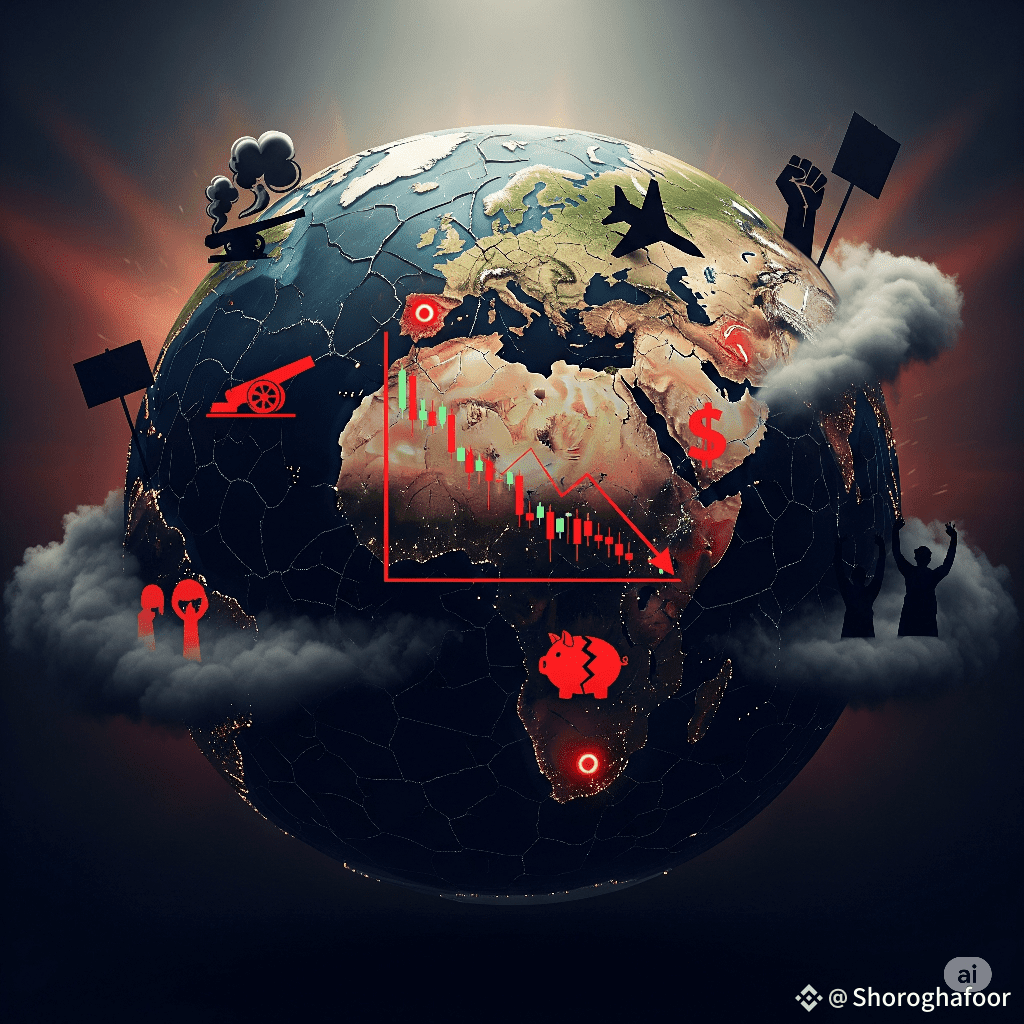 The world in 2025 is grappling with an unprecedented level of political instability, driven by a powerful trifecta of economic hardship, escalating conflicts, and deep-seated social distrust. It's a perfect storm—a "polycrisis" where multiple interconnected risks are colliding to create a volatile and uncertain global landscape.
The world in 2025 is grappling with an unprecedented level of political instability, driven by a powerful trifecta of economic hardship, escalating conflicts, and deep-seated social distrust. It's a perfect storm—a "polycrisis" where multiple interconnected risks are colliding to create a volatile and uncertain global landscape.
A World at War: The Rise in Global Conflicts 🔥
From Ukraine to Gaza, the world is embroiled in over 110 armed conflicts, each one a powder keg threatening to ignite wider regional and international crises. The ongoing wars have not only caused immense human suffering but have also sent shockwaves through global supply chains and political alliances. The Middle East remains a critical hotspot, with tensions between Iran and Israel threatening to pull more countries into a broader conflict. Meanwhile, in Africa, disputed elections and economic despair are fueling unrest and humanitarian crises.
The Economy's Unraveling Thread 💸
Public discontent is boiling over, and much of it is fueled by a challenging economic reality. Rampant inflation, growing inequality, and a wave of protectionist tariffs have hit people hard, leaving many to feel that the system is rigged against them. The trade wars, exacerbated by U.S. tariffs, are reshaping global trade routes, pushing countries like Mexico and Vietnam into new roles as major trade hubs. This economic pain is a primary driver behind the surge in populist and far-right movements from Europe to Latin America, as voters seek radical change.
Electoral Shocks and Political Realignment 🗳️
The political landscape is undergoing a dramatic shift. In Europe, we're seeing populist parties gain unprecedented traction, signaling a profound loss of faith in traditional governance. The political struggles in Germany and electoral losses for Canada's Liberal Party highlight the fragility of even established democracies. In Asia, India's ruling party has lost its majority, while relations between China and Japan are defined by a state of “stable instability,” balancing cooperation with deep-seated rivalry. These shifts reflect a global public hungry for new leadership and new solutions.
The Social Fabric Under Stress 😠
Beneath the geopolitical tensions lies a rising tide of social unrest. People are more distrustful of institutions than ever before, fueled by issues like food insecurity in places like Lebanon and Tunisia. Even advanced economies like France and the UK are experiencing significant social mobilization. This discontent is being amplified by the rapid spread of misinformation and disinformation, supercharged by AI, which further polarizes societies and erodes public trust.
The "Polycrisis" Explained: When Risks Collide 🌀
Experts are calling 2025 a year of “polycrisis,” a term that describes how interconnected crises—from climate change to trade wars and social unrest—are amplifying each other. A global political risk score of 40.2% highlights just how volatile the world has become, with 112 out of 162 countries facing a higher risk level than before 2020. This new era demands a radical shift in how we approach governance and global cooperation. While some authoritarian states have managed to suppress short-term instability, it's often at the cost of civil liberties. The real question for the future is whether democracies can adapt to this new, turbulent reality.
